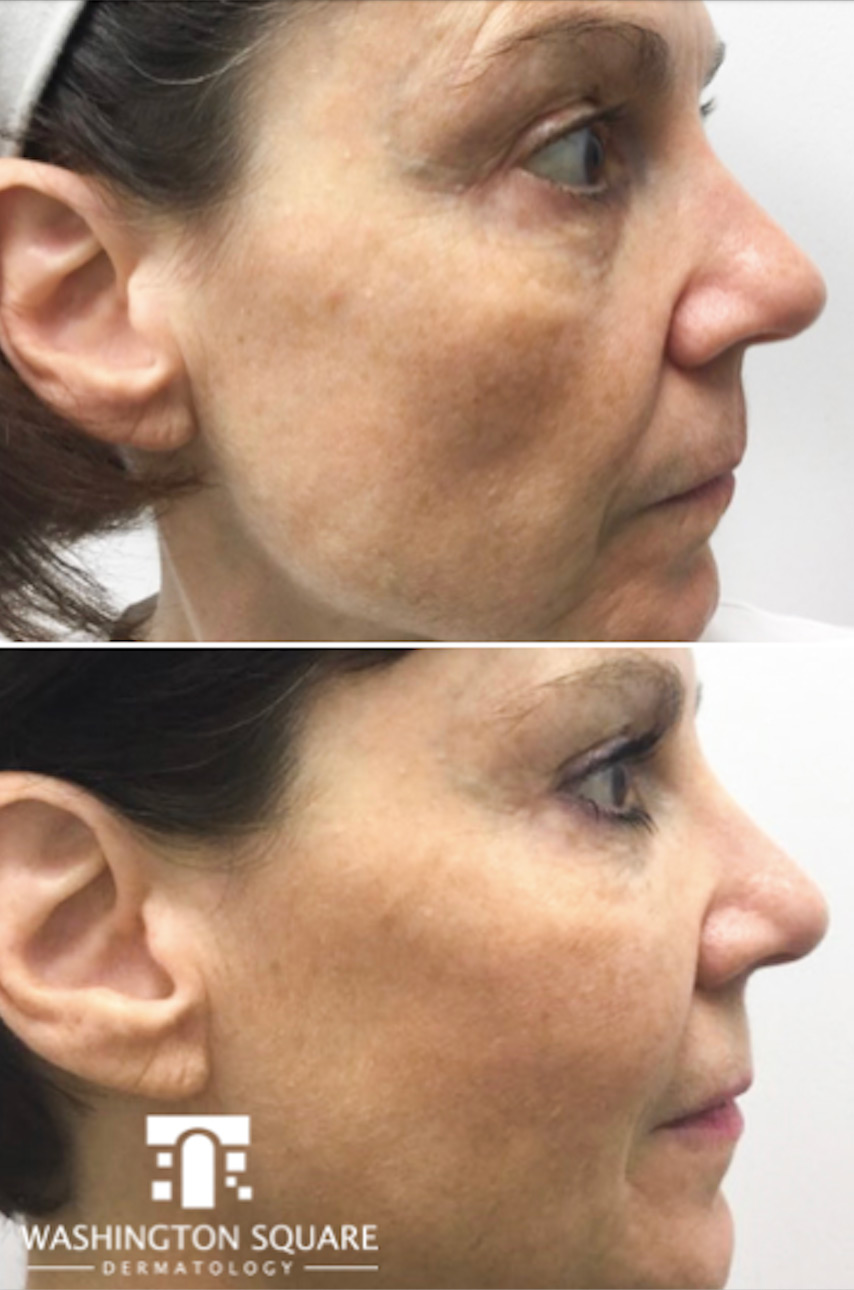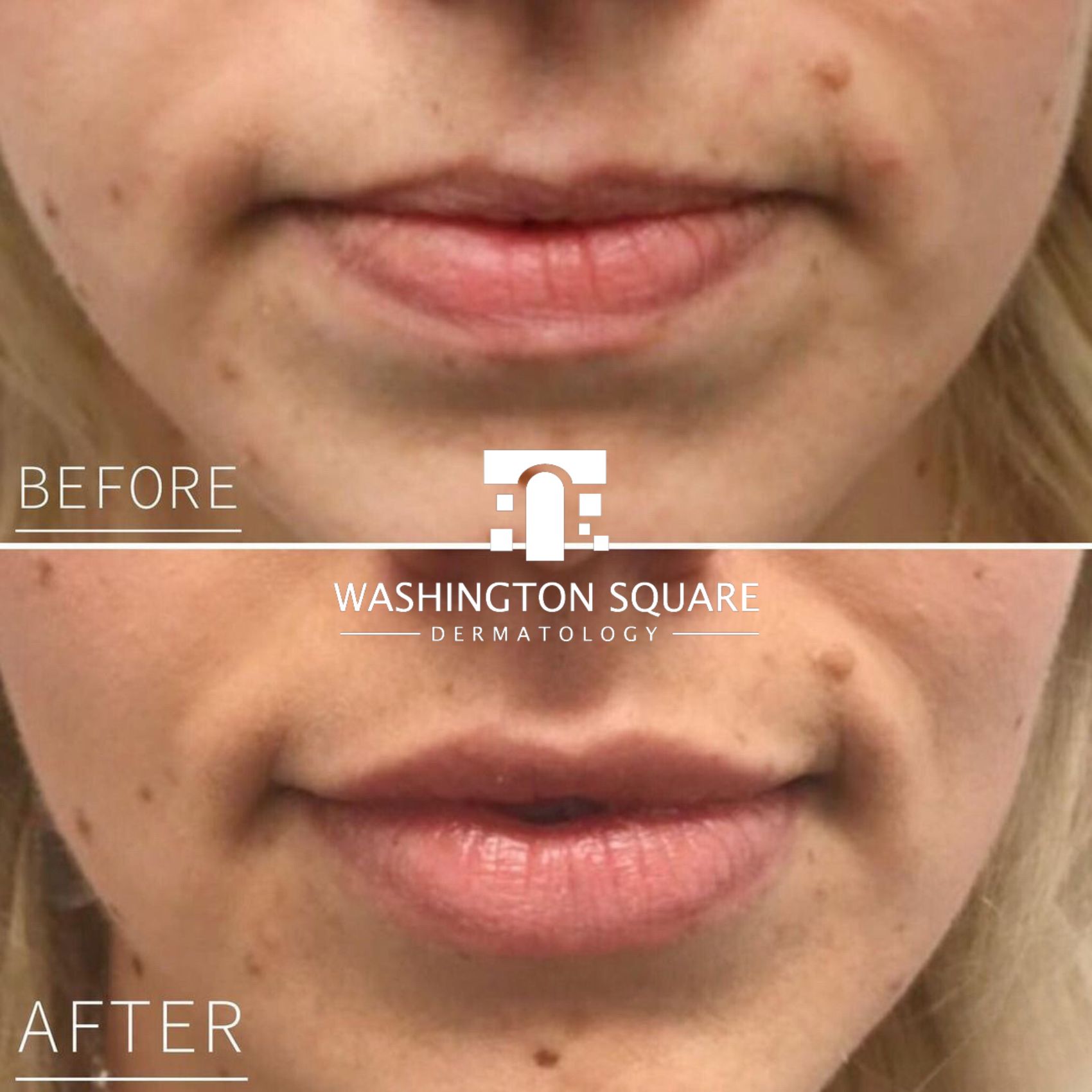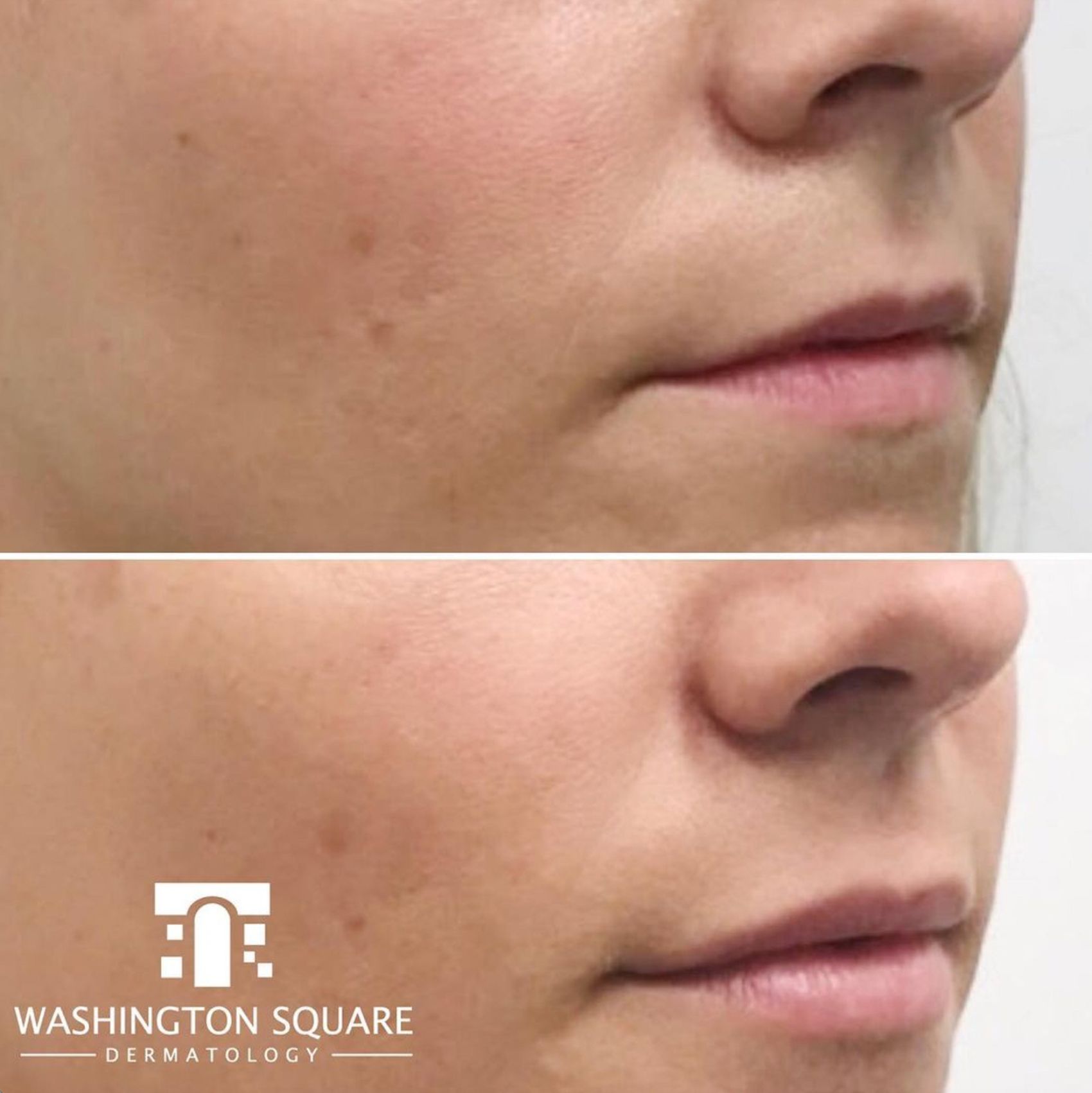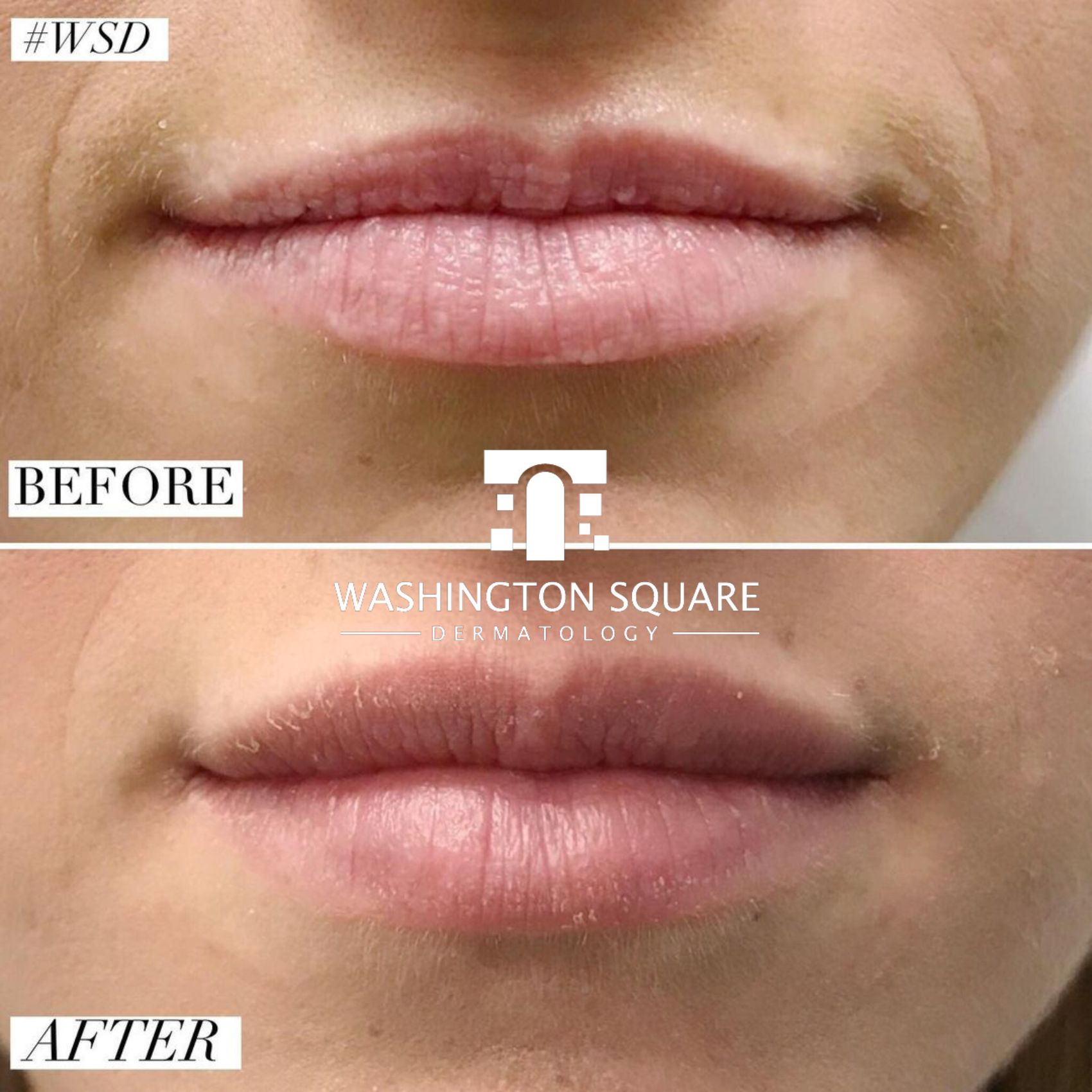The skilled providers at Washington Square Dermatology offer filler injections in our NYC office, which instantly restore volume, smooth away deep lines and facial creases and can give you the cheeks, lips and jaw line of your dreams!
What are Fillers?
As we age, we all lose volume in our face. As the natural volume of skin diminishes, wrinkles and folds settle in. Fillers instantly restore volume and smooth away deep lines and facial creases. Fillers can restore volume in the cheeks, jaw line, chin, minimize dark circles under the eyes, create fuller lips, develop facial contouring, restore lost volume in the hands and even improve the appearance of acne scars.
There are many types of fillers. The most common type of filler is composed of hyaluronic acid, a naturally-occurring sugar in our skin. There are many types of hyaluronic acid fillers, including Juvederm, Restylane, Belotero and Revance. Each filler has its own unique properties and formula that allows it to be used for different concerns or facial areas. One of the benefits of hyaluronic acid fillers is that they are completely reversible as they can be dissolved with the injection of an enzyme.
Let’s Talk
With extensive experience in medical, cosmetic, and laser dermatology, we take the time to thoroughly discuss your concerns and goals before customizing a treatment plan for you.

What are non-Hyaluronic Fillers?
Radiesse and Sculptra are non-hyaluronic fillers that are used when the goal is to create more structure and improve a significant amount of volume loss in the face.
What Fillers are available at Washington Square Dermatology?
At our New York office, we offer many different types of fillers. In the Juvederm family, we offer Juvederm Voluma, Juvederm Volbella, Juvederm Ultra, Juvederm Ultra Plus and Juvederm Vollure. In the Restylane family we offer Restylane, Restylane Lyft, Restylane Kysse, Restylane Defyne, and Restylane Refyne. Other fillers in our office include Belotero, Radiesse, Sculptra and Revance. Patients should schedule a cosmetic consultation to discuss what type of filler would help them achieve their aesthetic goals.
How do Fillers work?
The injection of fillers into the skin replace volume lost due to natural aging. Fillers restore and lift the face. They may be used to promote a natural and youthful appearance.
How are Fillers Injected?
Patients can expect to come into the office one hour before their scheduled appointment time for filler. A topical lidocaine numbing cream is applied prior to the procedure to minimize any potential discomfort.
The injections typically take between fifteen and thirty minutes, depending on the area being treated and how much filler is being injected. Patients can expect to ice after the procedure to minimize swelling. Results are immediate and downtime is minimal. Additionally, the majority of filler that we offer in our office contains lidocaine, reducing discomfort during injection.


Lip Filler
Come See Why Our Patients Love Us!
TRUSTED BY OVER
HONORED TO HAVE OVER
PRIVILEGED TO SEE PATIENTS FROM ALL
Frequently Asked Questions About Fillers
What areas can Fillers treat?
Fillers are most commonly used to instantly restore volume and smooth away deep lines and facial creases. Fillers can be injected:
- Into the cheek bones, jaw, and chin to sculpt, contour, and restore facial structure
- Into the lips to create a fuller appearance
- Into the under eye area to minimize under eye hollowness and darkness
- Into the hands to restore lost volume
- Throughout the face to improve the appearance of acne scars
How long do Fillers last?
Depending on the area injected and type of filler, fillers can last between 6 months to up to 2 years.
How should I prepare for Fillers?
For new patients, fillers will be discussed during your initial cosmetic consultation. We ask that patients do not drink alcohol or take any over-the-counter medications or supplements that increase the risk of bruising (such as Ibuprofen, Aspirin, Vitamin E) one week before your filler appointment to minimize the risk of bruising.
Are Filler injections painful?
Filler injections are very tolerable. To minimize discomfort we ask our patients to come to the office one hour prior to their appointment time to apply topical numbing cream. In addition, we offer all of our patients Pro-Nox Nitrous Oxide, which significantly reduces anxiety and pain during the procedure.
How much do Fillers cost?
Fillers are priced at $850 per syringe. If patients are planning on doing multiple syringes, the price of the first syringe will be $850 and additional syringes injected the same day will be priced at $700 per syringe. We recommend patients schedule a cosmetic consultation with one of our providers to discuss how much filler would be recommended to help achieve their aesthetic goals.
What should I expect after Fillers?
Patients should expect to ice in our office for about 15 minutes immediately after fillers. After icing in our office, patients can return to light activities and should continue to ice for the remainder of the day. Exercise and flying should be avoided for at least 24 hours and patients should not lay down for at least 6 hours. Patients can expect mild swelling and bruising after filler is injected. However, this usually subsides within 2-3 days after the procedure.
Are there any side effects to Fillers?
Patients may experience bruising or swelling around the site of injections. Patients can expect these symptoms to subside within a few days after their treatment. To mitigate the risk of bruising, patients should avoid medications and supplements that increase the risk of bruising (Ibuprofen, Aspirin, Vitamin E) and alcohol for one week before their appointment. Additionally, patients are encouraged to continue icing the areas treated with filler for the remainder of the day.
Are there any risks to Fillers?
Fillers should only be injected by a licensed professional with ample experience and knowledge of the corresponding anatomy. Potential risks of filler injections include but are not limited to infection, nodule formation, skin necrosis and even blindness.



